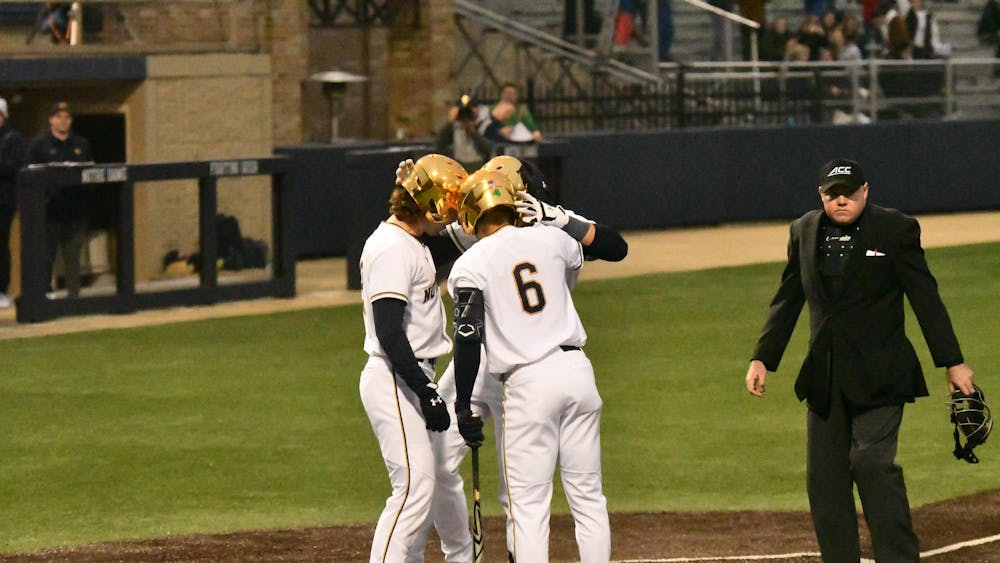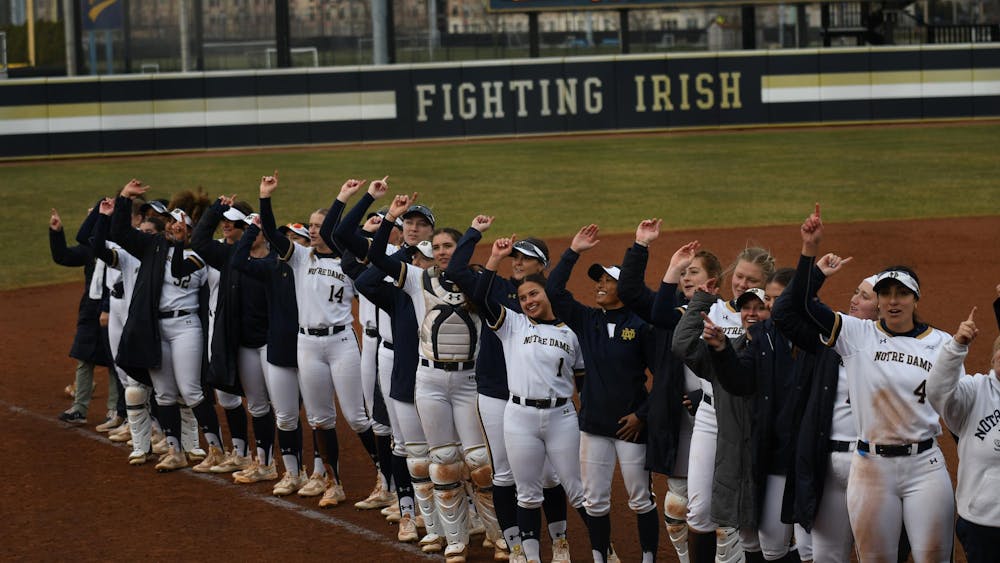If you’re like me, you’re exhausted with the endless snow and wind that keeps blasting South Bend. You’re looking for something – anything – to ward off the cabin fever that has set in. And if you’re like me, you have turned on the TV to watch the Winter Olympics, where the snow and ice is far, far away.
Regarded by many to be the far less entertaining counterpart to the Summer Games, the Winter edition of the Olympiad is one of my favorite sports events. Unfortunately, this year’s Games have mostly drawn attention for Sochi’s abysmal preparation. It has become a game for journalists to send out tweets about how bad the hotels, food and streets are. Who can find the best example of Russia’s incompetence? My vote goes to Dan Wetzel, of Yahoo! Sports, who offered to trade three light bulbs for a working doorknob in utter seriousness.
More seriously, the Games have been plagued with trouble for months. From Russia’s heavily criticized “gay propaganda” law to the very real threat of terrorist attacks to Sochi’s attempt to put down stray dogs in the city, people have continually questioned Sochi’s right and ability to host the Games.
Russian President Vladimir Putin pushed hard for the Games in an attempt to celebrate Russian might and power. Already, Sochi has paid a steep price for that ‘honor’. With a price tag of at least $51 billion, these Games are the most expensive of all time, despite the fact that the Summer Games usually have twice as many athletes.
Most people look at these issues and blame Russia, but surprisingly little has been said about the International Olympic Committee’s decision to give the Games to Russia in the first place. What did the IOC expect when it gave the Games to Putin?
To be fair, the IOC voted for Sochi in 2007 and could not anticipate Putin’s gay propaganda law. Similarly, no matter where the Games are, there will always be terrorist threats. But these excuses pale in comparison to the lack of foresight and complete obliviousness that the IOC displayed.
First of all, the IOC prides itself as being an organization that is above politics. At least, it does its best to project that image. For example, a goalie for the U.S. women’s hockey team was required to remove a quote from the Constitution from her helmet. But the selection of Sochi was and is in complete opposition to this image. Sochi’s qualifications included a complete lack of infrastructure, a subtropical climate and a corrupt government led by a man that has faced a broad range of corruption accusations.
The Games should not be about politics, but the IOC’s decision flew in the face of logic. In trying to make the Olympics about equality, the committee gave them to a country and a leader that saw them almost exclusively in terms of power. Much like China in 2008, Putin has a long history of civil rights abuses, election fraud, restrictions on free speech and brutal crackdowns on dissenters. Does the IOC really want to associate themselves with such a government?
The IOC also says it stands for fairness, but these Games have been one of the most corrupt in history. A Swiss IOC official, Gian-Franco Kasper, estimated that about a third of the $51 billion spent on the Games have gone towards bribes and kickbacks. Putin’s government has a long history of jailing those who uncover corruption, but Kasper said his estimate was based on common knowledge in Russia. How did the IOC not see this coming?
The IOC has made controversial choices in the past. The Games were held in Berlin in 1936, at the beginning of Hitler’s reign, and the Soviet Union in 1980 and Beijing in 2008. The decision to award Sochi’s bid is just more of the same.
There is no doubt that the athletic performances we will see in the coming weeks will be fantastic, thrilling and exciting. But years from now, will we really look back and think that Sochi was the best place for them to happen?













